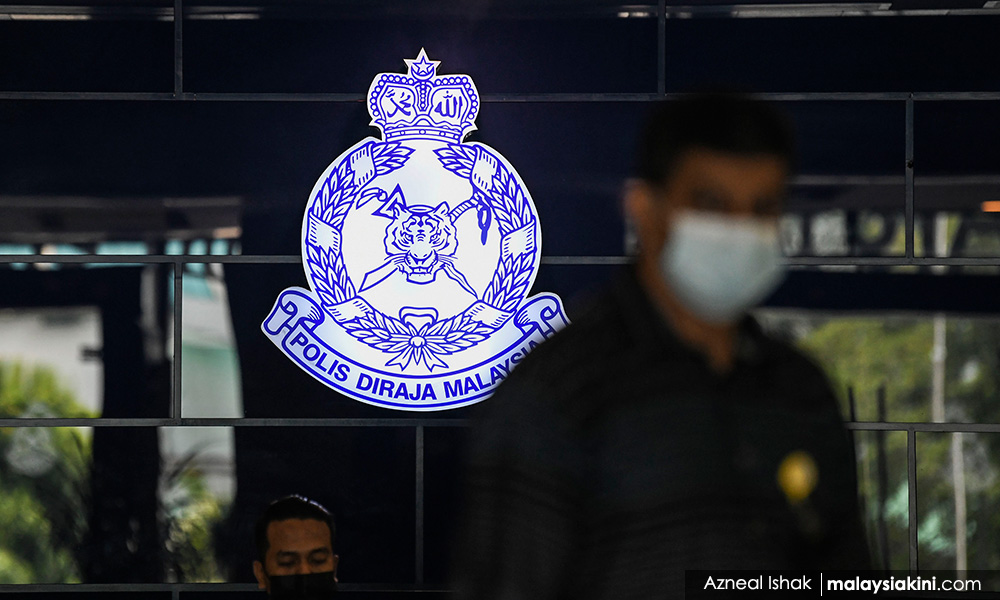COMMENT | Outgoing Inspector-General of Police (IGP) Abdul Hamid Bador’s recent call for the Police Force Commission to not be chaired by a "minister" to prevent political interference is a timely one.
It appears from a news article that there may have been interference in the management of the police force in the form of appointments of state chief police officers (CPOs), Bukit Aman directors and IGP. His proposal to have a non-politician as the commission chairperson is a wise call - as he so succinctly put it: “If a minister chairs the commission, political elements will seep into it.”
What is the consequence of politicians interfering in the management of the police force and will the appointment of key officials within the police force affect society?
Going back to our legal framework, the structure of Police Force Commission members is contained in Article 140(3) of the Federal Constitution which states that the Police Force Commission shall consist of the minister for the time being charged with responsibility for the police (home minister), who shall be the chairperson; the officer of police in general command of the police force; the person performing the duties of the office of secretary-general of the ministry under the minister for the time being charged with responsibility for the police; a member of the Public Services Commission appointed by the Yang di-Pertuan Agong; no less than two or more than six other members appointed by the Agong.
Obviously, Malaysians are legally constrained by the role of one of its Police Force Commission members (home minister) who also acts as chairperson within the commission, since it is provided for constitutionally. However, we must take cognisance of the fact there are other members within the commission who must provide the necessary check and balance in such appointments.
Decisions on who would be fit and proper to be appointed within the police force must surely be made by the entire Police Force Commission board, rather than by the home minister alone, and surely it must go through the rigamarole of good screening practices established, solely in the interest of the public so that the police force can properly carry out their expected societal duties.
Politicians interfering in the appointment of official police administrators, can often mean that these officials can be fired just as easily, if they do not toe the line. The "line" spoken of, is of course the "political line", and not the societal lines we expect the police force to provide us with.
When police officials are appointed by politicians, it is palpable that the style of law enforcement, implemented societal policies and policing norms can and will be heavily influenced by politics and those that appointed them. It erodes police legitimacy, as they become viewed as a mere tool in the hands of a political candidate or party. The question of impartiality of police officers regarding the outcome of the duties will definitely be called into question by the public.

Police cannot be endorsing politicians, nor by the same token, can politicians be endorsing CPOs, Bukit Aman directors and IGP. Police are seen to bringing before the courts people for criminal activities. What of possible corruption and abuse of power when politicians appoint CPOs, Bukit Aman directors and IGP?
Needless to say, any political intervention in the appointment of CPOs, Bukit Aman directors and IGP is certainly an erosion of democracy. It does not augur well for the country if a home minister has such power.
The police force is entrusted to take care of the safety of the community and ensuring that the law is implemented equally across the board as per Article 8 of our Federal Constitution. The police force contributes towards problem resolution and community policing, and not add to the contracting democratic space within the nation so apparent currently.
The Police Force Commission Board – do take your role within the commission seriously for our nation, lest the public would become more and more estranged from the police force (and the politicians) – or we may just heed the call for the commission structure to be changed by way of a constitutional amendment.
KAREN CHEAH YEE LYNN is a lawyer and Bar Council constitutional law committee chairperson.
The views expressed here are those of the author/contributor and do not necessarily represent the views of Malaysiakini.

